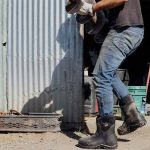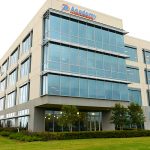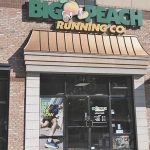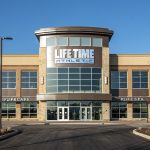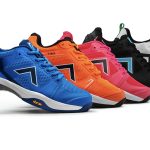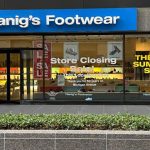Accell Group N.V., the Dutch bicycling company that recently acquired e-bike maker Currie Technologies of California, reported that revenues rose by 9 percent to €628.5 million ($876mm) last year, from €577.2 million ($766mm) in 2010, partly on the back of rising sales of electric and sports bicycles, due in particular to strong growth in Germany.
“We are satisfied with the results we achieved, particularly in view of the current economic climate, which is making consumers hesitant tomake major purchases,” said CEO René Takens. “The electric bicycle continues to gain in popularity in the Netherlands and abroad, in particular in Germany. Thanks to the increase in sales, that segment now accounts for 31 percent of the total bicycle sales of Accell Group. Sales and profit from bicycle parts and accessories also showed healthy growth. In this segment, we noted that while consumers are putting off new bicycle purchases, they are investing in the maintenance of their existing bicycles”
In addition to the reduced tax burden, the book profit of €16 million on the sale of Accell’s 22 percent stake in the listed company Derby Cycle lifted net profit, but the windfall was largely offset by
the definitive ruling in a case with the Dutch anti-trust authority NMa, which has been ongoing for more than 10 years.
The company expects cycling to remain very popular in the coming years, with bicycles increasingly becoming a lifestyle product for consumers, especially for young people globally.
“And thanks to investments in our strong brands, innovations, design and the geographical presence of our activities we can also respond rapidly to changes in the market,” said Takens. “Barring unforeseen circumstances, we therefore expect a further increase in sales and net operating result in 2012.”
Key developments in 2011
In 2011, Accell Group saw its sales increase by 9 percent, due to both organic growth and as a result of acquisitions. Sales in bicycles rose by 9 percent and sales in bicycle parts and accessories were up 15 percent. The bicycle season started early in the spring, but the poor weather in the summer led to the postponement of sales until after the season. This made extra discounts necessary, which in turn put pressure on the margins in the second half of the year.
The integration of Accell Bisiklet (Turkey) and the 50 percent stake in Atala (Italy) was completed in early 2011. In June, we acquired Vartex, a small distributor of bicycles and bicycle parts in Sweden. In November, Accell Group reached agreement on the acquisition of Van Nicholas, a Dutch niche player in titanium bicycles for the high-end segment, while in December we reached agreement on the acquisition of Currie Technologies, an important supplier of electric bicycles and e-steps (mini escooters) in North America.
Sales at the fitness division, which has been strongly reduced in size in recent years, continued to decrease in 2011 due to lower sales and the scaling down of the activities in North America.
Sales specification (amounts in € million)
Geographical Per product group
Netherlands 216.4 Bicycles 465.6
Germany 176.3 Parts and accessories 141.3
France 58.0 Fitness 21.6
Rest of Europe 123.4
Other countries 54.4
Bicycles/Bicycle parts & Accessories
Sales in the segment bicycles/bicycle parts & accessories increased by more than 11 percent to €607.6 million, from €548.7 million in 2010. The acquisition of the Turkish firm Accell Bisiklet and the Swedish company Vartex pushed the number of bikes sold to 1,115,000 from 949,000 in 2010. The average price dropped to €417, from €449 in 2010, due to the addition of cheaper bicycles to the range, in particular through Accell Bisiklet. Organically, the average bike price increased. Sales of electric bicycles were up 21 percent and now account for 31 percent of total bicycle sales. Sales in sports bikes increased by 23 percent. Profit from this segment came in at €52.8 million, compared with €55.5 million in 2010.
Sales of bicycles in the Netherlands dropped in line with the market, while sales in bicycle parts and accessories showed a strong increase. The poor summer weather meant that in the Netherlands in particular, a lot of bicycles had to be sold at a discount in the second half year, because they had failed to sell before the end of the season in September. The market is weak because consumer spending remains cautious. Consumers are concerned with an uncertain future, which means they are postponing purchases of more expensive products more frequently. At the beginning of 2012, Accell Group acquired Van Nicholas, a niche player in titanium bicycles and frames for the top segment with attractive international growth potential.
The greatest increase in sales was recorded in Germany. Bicycle sales were up 26 percent and sales in bicycle parts and accessories rose by 16%. In Germany, national and regional authorities are strongly promoting cycling and the electric bike is gaining in popularity. Total sales of electric bikes in the German market were estimated at 250,000 300,000 in 2011. The increase in the number of electric bikes sold also led to an increase in the average bicycle price. In France, sales in bicycle sales was down due to a weak market. Sales in bicycle parts and accessories in France rose by 26 percent in 2011.
Sales in other countries increased both within and outside Europe. The addition of Accell Bisiklet resulted in an increase in sales in Turkey, Italy and Finland, while the acquisition of Vartex increased sales in Sweden. In the United States, sales in bicycles and bicycle parts remained stable, despite the uncertain economic climate. In December, Accell Group reached agreement on the acquisition of Currie Technologies, an important supplier of e-bikes and e-steps (mini e-scooters) in the US. The acquisition was completed in Janauary 2012. Accell Group’s sales from bicycles in Asia remains limited for now. Demand for bicycles in the higher segments will increase partly as a result of rapidly increasing wealth in Asia and we have strengthened our own organisation in the region in preparation for that growth.
Fitness
Sales in the fitness segment dropped to €21.0 million, from €28.5 million in 2010. This reduced the contribution to sales from this segment to 3 percent. The result from this segment fell to a loss of €1.4 million, from a loss of € 0.4 million in 2010, as a result of the drop in sales. This loss excludes extraordinary reorganisation charges of around €4.0 million. These reorganisation costs pertain in particular to the costs of reducing inventories and receivables, reorganisation and relocation costs and deferred taxes. We continued with the gradual downsizing of the organisation in 2011 and reduced the cost base. A reduction in working capital resulted in a positive cash flow in 2011.
The market for fitness equipment for home use, the main market for the products of Tunturi and Bremshey, remains weak. We adjusted the organisation in line with reduced sales levels mainly through the previously announced downsizing of the activities in North America. We closed down the office and distribution centre and are only continuing the service activities. We relocated the head office in the Netherlands to a new and less expensive location and we have also adjusted the organisation in the Netherlands. We have outsourced all production activities to manufacturers in Asia. Accell Group has a distribution centre in Asia for centralised deliveries from suppliers. This centre supplies the full range of products to more than 40 distributors across the world. Accell Group is keeping all options open in terms of the future of the fitness activities.
Key financial developments in 2011
Total sales rose by 9 percent in 2011 to €628.5 million, with 4% of this growth organic. Added value (net sales less material costs and inbound transport costs) as a percentage of sales came in at 33 percent in 2011, compared with 35 percent in 2010. The slight drop in added value was primarily related to developments in the second half of the year.
Operating costs as a percentage of sales remained stable at 27 percent, unchanged from 2010. Personnel costs rose by 5 percent due to acquisitions and came in at 12.8% of sales, compared with 13.3 percent in 2010.
Financial income and expenses (excluding the interest on the NMa fine) rose by 25 percent due to a higher average credit requirement. The tax burden fell to 7 percent, from 14 percent in 2010, due to the participation exemption on the book profit related to Derby Cycle AG and the favourable tax regime in the Netherlands, as well as the impact of the legal restructuring of Accell Group’s German activities, which came into effect in 2009. The application of the innovation box had an impact of €800,000 in 2011.
The result from minority participations came in at €400,000 in 2011, up from €100,000 the previous year, due to the addition of the 50 € stake in Atala (Italy). The book profit on the sale of Accell Group’s stake in Derby Cycle AG amounted to more than € 17 million, of which € 16.1 million remained after the deduction of costs.
Net profit for the 2011 financial year was € 40.3 million, up from € 36.4 million in 2010. Excluding one-off items in both 2010 (€ 5.9 million due to the innovation box deduction and the one-off release of provisions for taxes and acquisitions) and 2011 (€ 8.6 million due on the one hand to the book profit on the sale of Accell Group’s stake in Derby Cycle and the innovation box, and on the other to the charges for the NMa fine and the reorganisation of the fitness activities) the net operating result rose by 4% to € 31.7 million, from € 30.5 million in 2010.
Mainly due to acquisitions (Accell Bisiklet, Atala and Vartex), the balance sheet total had risen to € 434.0 million at year-end 2011, from € 383.9 million at year-end 2010. Total working capital
amounted to € 222.0 million, compared with € 199.8 million in 2010. Working capital amounted to 35.3% of sales, compared with 34.6% in 2010. Acquisitions had an impact of € 16.0 million on this figure. Inventories decreased by 2% organically at year-end 2011, compared with year-end 2010.
Capital employed rose to € 353.4 million, from € 302.5 million in 2010. The return on capital employed stood at 11.5% at the end of the 2011 financial year, compared with 15.3% at year-end
2010, based on the operating result adjusted for one-off items. Shareholders’ equity amounted to € 214.6 million at the end of the 2011 financial year, up from € 180.4 million at the same time in 2010.
In addition to the impact of the profit realised in 2011, shareholders’ equity was also influenced by the payment of a cash dividend of € 9.9 million (2010: € 7.6 million) and other movements of around € 3.9 million, including the impact of revaluation of financial instruments (currency hedges and interest rate swaps). Provisions fell to € 22.5 million in 2011, from € 23.3 million in 2010, due on the one hand to the payment of the NMa fine and on the other to assumption of obligations as a result of acquisitions.
Solvency stood at 49.5% at year-end 2011, up from 47.0% at year-end 2010. Total loans and bank credits amounted to € 119.9 million at year-end 2011, compared with € 101.8 million at year-end 2010. The financing ratio of Net Debt / EBITDA stood at 2.0 at the end of the 2011 financial year, compared with 1.9 a year earlier. Interest coverage on the basis of the adjusted operating result came in at 6.5 in 2011, down from 10.6 in 2010.
Operating cash flow before working capital and provisions amounted to € 58.6 million, compared with € 54.3 million in 2010. Net cash flow from operating activities rose to € 39.4 million, from € 3.3 million in 2010. The strong operating cash flow was largely due to the favourable development of inventories in the second half of the year.
Earnings per share and dividend
Earnings per share on the basis of the weighted average number of outstanding shares, which stood at 20,905,497 shares at year-end 2011, came in at € 1.93, up from € 1.75 in 2010. Due to the issue of 403,592 shares related to the stock dividend for the 2010 financial year, the correction factor for earnings per share from previous years is 0.981. The increase compared with the reported earnings per share in 2010 (€ 1.78) was 8%.
Accell Group will propose to its shareholders the payment of a dividend of € 0.92 per share, compared with € 0.84 in 2010, in cash or in shares. This results in a pay-out ratio of 48% (2010: 48%) and is therefore in line with Accell Group’s dividend policy and unchanged from previous years. Based on the closing price of Accell Group shares at year-end 2011 (€ 14.10), the dividend yield amounts to 6.5%.
Outlook
In the years ahead, the popularity of bicycle use for recreation and sport, and as an alternative to cars will continue to increase, both in the Netherlands and elsewhere. Consumer demand is high for electric bikes, more expensive mountain bikes, sports bikes, racing bikes and bikes for special target groups.
Further increases in scale are important to realising benefits in purchasing, production, development and marketing. In 2012, Accell Group will continue to actively seek potential acquisitions that fit in with the group’s profile and brand portfolio. Acquisitions must be complementary and add value to the group in the short term, in terms of both returns and synergy.
Expectation
The medium to long term outlook remains positive. There is structurally positive demand for bicycles for mobility, health and active sports. This will continue to boost sales in particular in electric bikes and sports bikes in the higher market segments. However, the macro-economic conditions in Europe in particular currently remain highly uncertain. Barring unforeseen circumstances and based on the above developments, we expect an increase in sales and net operating result in 2012 as compared with 2011.

